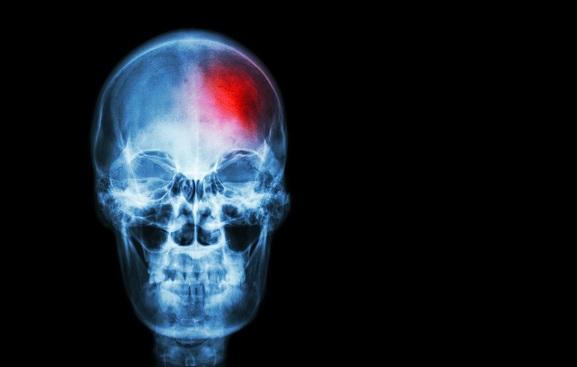Early Statin Therapy Fails to Boost Acute Stroke Outcomes, but Trial Methods Questioned

HOUSTON, TX—Patients with mild acute ischemic stroke do not derive a benefit in terms of 90-day functional outcomes from initiating statins early rather than a week after the event, a Japanese trial suggests, although limitations of the study complicate interpretation.
Initiation of statins within 24 hours of stroke onset did not improve the distribution of modified Rankin Scale scores (adjusted common OR 0.84; 95% CI 0.53-1.30) or most secondary outcomes, Shinichi Yoshimura, MD, PhD (Hyogo College of Medicine, Nishinomiya, Japan), reported at the International Stroke Conference here.
The only outcome that favored early versus delayed treatment was the level of LDL cholesterol, which was reduced in both groups by 21 days but reached a lower level in the patients treated earlier (71.2 vs 83.8 mg/dL; P = 0.001).
That is an important finding, according to Bruce Ovbiagele, MD (Medical University of South Carolina, Charleston), who moderated a press conference at which Yoshimura presented the results.
“A key part of management after a stroke is really secondary prevention, so . . . that tells us that starting early gets you to your goal quicker, which is what we want in terms of optimizing secondary prevention,” Ovbiagele said, adding that it is known that starting medications in the hospital is a strong predictor of use after discharge.
As for why the trial failed to show an effect on functional outcomes, he pointed to the fact that patients included in the trial had relatively mild strokes—median NIH Stroke Scale (NIHSS) score of 3—and received less-intense statin regimens.
He said it is worth pursuing future trials in which patients with more severe strokes receive high-intensity statins—atorvastatin 80 mg/day or rosuvastatin 20 or 40 mg/day, for example. The type of stroke may be important, as well, as there was a signal that patients with atherothrombotic strokes may benefit. If the study population can be tailored in such a way, an improvement in outcomes with early initiation of statin therapy may be seen, Ovbiagele said.
Trial Does Not Validate Observational Findings
The concept of starting statins early in the acute phase of stroke to improve functional outcomes is supported by multiple observational studies. A prospective Italian study showed that initiating statins within 72 hours in patients with acute stroke treated with IV thrombolysis was associated with a greater likelihood of achieving a favorable neurological outcome. And another study demonstrated that among patients on chronic statin therapy, withholding statins for the first 3 days after an ischemic stroke was related to early neurologic deterioration and a greater risk of death or dependency at 3 months.
To explore the issue in a randomized fashion, the investigators designed the ASSORT trial, a multicenter study enrolling 270 patients with lacunar or atherothrombotic strokes, hypercholesterolemia, and the ability to take oral medications within 24 hours of admission. Slightly less than half of patients had a history of dyslipidemia and 13% to 18% were already taking statins before the stroke. About 8% received IV thrombolysis.
The statin regimens used in the study were atorvastatin 20 mg/day, pitavastatin 4 mg/day, and rosuvastatin 5 mg/day. Patients in the early group received treatment in the first 24 hours and those in the delayed group started treatment on day 7.
The lack of a difference between trial arms in terms of 90-day functional outcomes was consistent across subgroups. There were also no differences in changes in NIHSS scores through day 7 or in rates of unstable angina, new ischemic stroke, nontraumatic cerebral or subarachnoid hemorrhage, death, overall adverse events, progression of symptoms, musculoskeletal adverse events, or creatine kinase increase.
Ovbiagele told TCTMD that the findings are not going to change practice in the United States, where statins are started as early as possible after an acute ischemic stroke, typically before the patient is discharged.
The American Heart Association/American Stroke Association guidelines for the early management of acute ischemic stroke do not contain a strong recommendation regarding statins. There is a class IIa recommendation stating that it is reasonable to continue statin therapy during the acute period in patients already taking statins when they have a stroke.
Todd Neale is the Associate News Editor for TCTMD and a Senior Medical Journalist. He got his start in journalism at …
Read Full BioSources
Yoshimura S. Randomized controlled trial of early versus delayed statin therapy in patients with acute ischemic stroke. Presented at: ISC 2017. February 24, 2017. Houston, TX.
Disclosures
- The ASSORT trial was supported by Shionogi & Co. Ltd.
- Yoshimura reports receiving research grants from Shionogi & Co. Ltd., Terumo, Takeda, and Bristol-Myers Squibb and honoraria from Mitsubishi Tanabe Pharma, Sanofi, Bristol-Myers Squibb, Boehringer Ingelheim, Otsuka Pharmaceutical, Bayer, Daiichi Sankyo, and Pfizer.


Comments